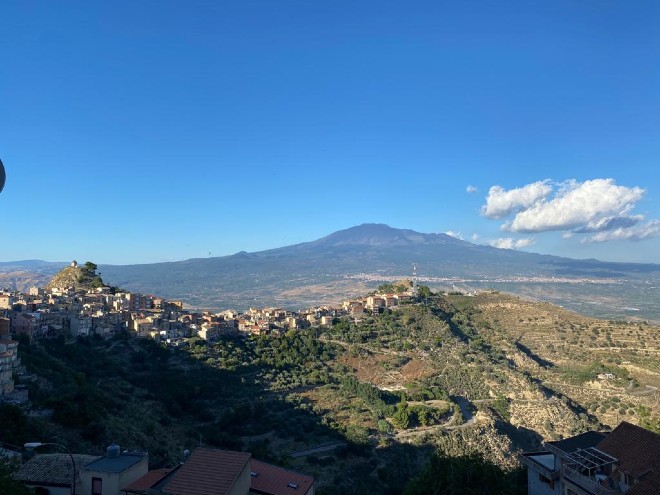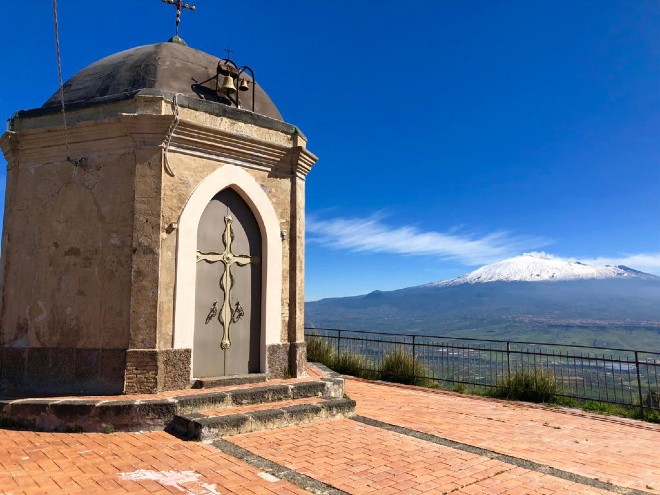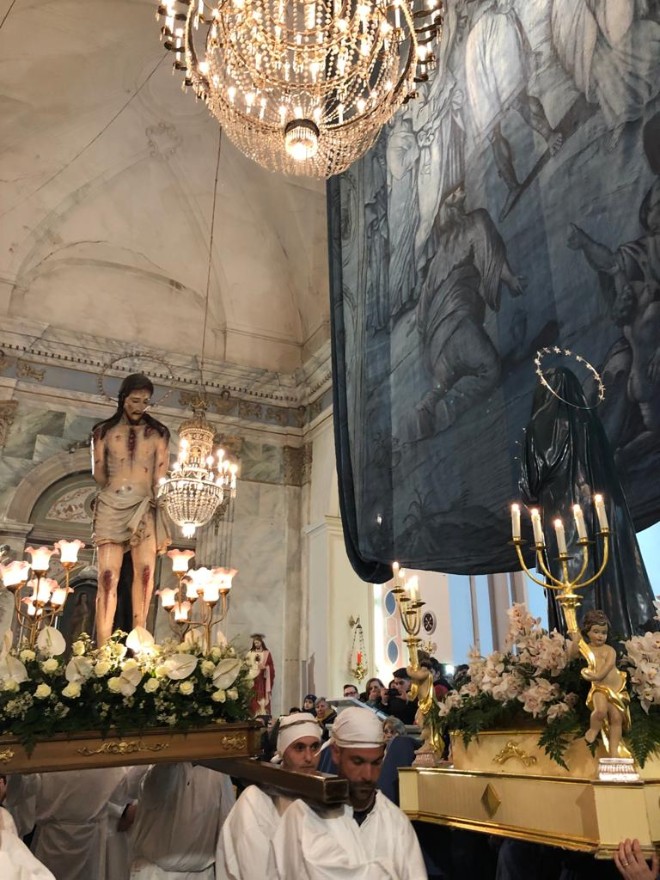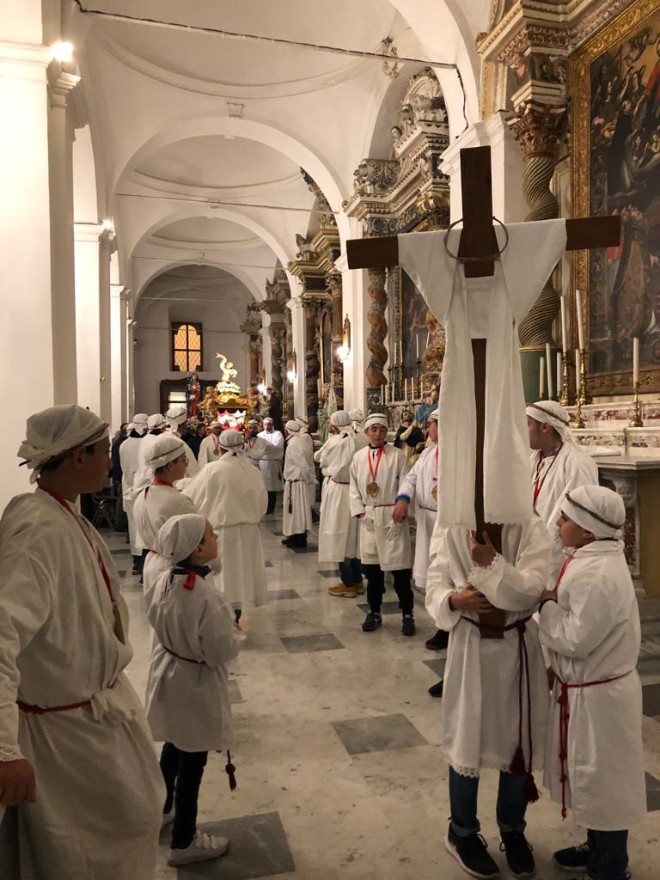 Centuripe. L’antica Kentoripa Sicula, ellenizzata dal V sec. a.C. è ubicata in una zona collinare (a circa 15 Km dallo svincolo di Catenanuova, sull’autostrada Catania-Palermo) tra i fiumi Dittaino e Salso.
Centuripe. L’antica Kentoripa Sicula, ellenizzata dal V sec. a.C. è ubicata in una zona collinare (a circa 15 Km dallo svincolo di Catenanuova, sull’autostrada Catania-Palermo) tra i fiumi Dittaino e Salso.
La cittadina ha vissuto un periodo di progresso economico e civile durante la dominazione romana, ma, parzialmente distrutta durante la guerra tra Ottaviano e Sesto Pompeo, iniziò la sua decadenza.
I resti monumentali più moderni risalgono all’età romana ed i grandi edifici rinvenuti dagli scavi danno la misura del potere che la cittadina raggiunse sotto i Romani. È rilevante il fatto che la completa distruzione della cittadina, avvenuta tra il 1267 ed il 1270, e la successiva ricostruzione avvenuta circa tre secoli dopo, hanno consentito di far giungere sino ai nostri giorni l’intero patrimonio monumentale, il museo cittadino custodisce i reperti più pregevoli.
Da visitare anche i ruderi del Castello di Corradino e, lungo la strada per Troina, il castello di Borgo Carcaci.
Video: Saluti da Centuripe
The junction of Catenanuova, on the Catania – Palermo motorway, leads, after about 15 kilometres, to one of the oldest and once most powerful towns in central Sicily: Centuripe. A visit to the town and its archaelogical site is not to be missed by those in search of past splendours. The large burial rooms demonstrate the presence of populations which had already settled in Centuripe in the 8th century BC. But the town appears in all its splendour in the Hellenistic period: the findings dating back to this period show that Centuripe was perfectly integrated into that world. The more impressive monumental remains, however, date back to Roman times: important public buildings and marble statues including those of large dimensions give an idea of the amount of power and hegemony which Centuripe had attained under the Empire of the Caesars. An important archaeological factor, because it ensured the preservation of the entire heritage, was the complete destruction of the town, between 1267 and 1270, and the successive reconstruction made about three centuries later. This glorious past can be entirely relived by going through the streets of Centuripe, where it is not unusual to notice columns or other remains from the past. The most interesting of the material uncovered during archaeological digs, is kept in the town museum. Finally, the remains of the Corradino castle, built on a Roman construction from the imperial age and another castle, the Borgo Carcaci, on the outskirts of the town along the road that leads to Troina are also worth a visit. Centuripe is also well known for its “copies” of earthenware and Hellenistic handmade articles. In the past, several “fake” objects were mistaken for original ones even by famous European museums.
It is an ancient roman building going back to II century a.C. The denomination of the castle, assumed in medieval age, is improper because it is a squared building, quite small, rather assimilable to a tower. It was employed by Corrado Capece like fortalice in the defence of the Swabians in Sicily. The structure rises in the historical centre of Centuripe.
 Centuripe. L’antica Kentoripa Sicula, ellenizzata dal V sec. a.C. è ubicata in una zona collinare (a circa 15 Km dallo svincolo di Catenanuova, sull’autostrada Catania-Palermo) tra i fiumi Dittaino e Salso.
Centuripe. L’antica Kentoripa Sicula, ellenizzata dal V sec. a.C. è ubicata in una zona collinare (a circa 15 Km dallo svincolo di Catenanuova, sull’autostrada Catania-Palermo) tra i fiumi Dittaino e Salso. EnnaVivi Magazine della provincia di Enna
EnnaVivi Magazine della provincia di Enna

































